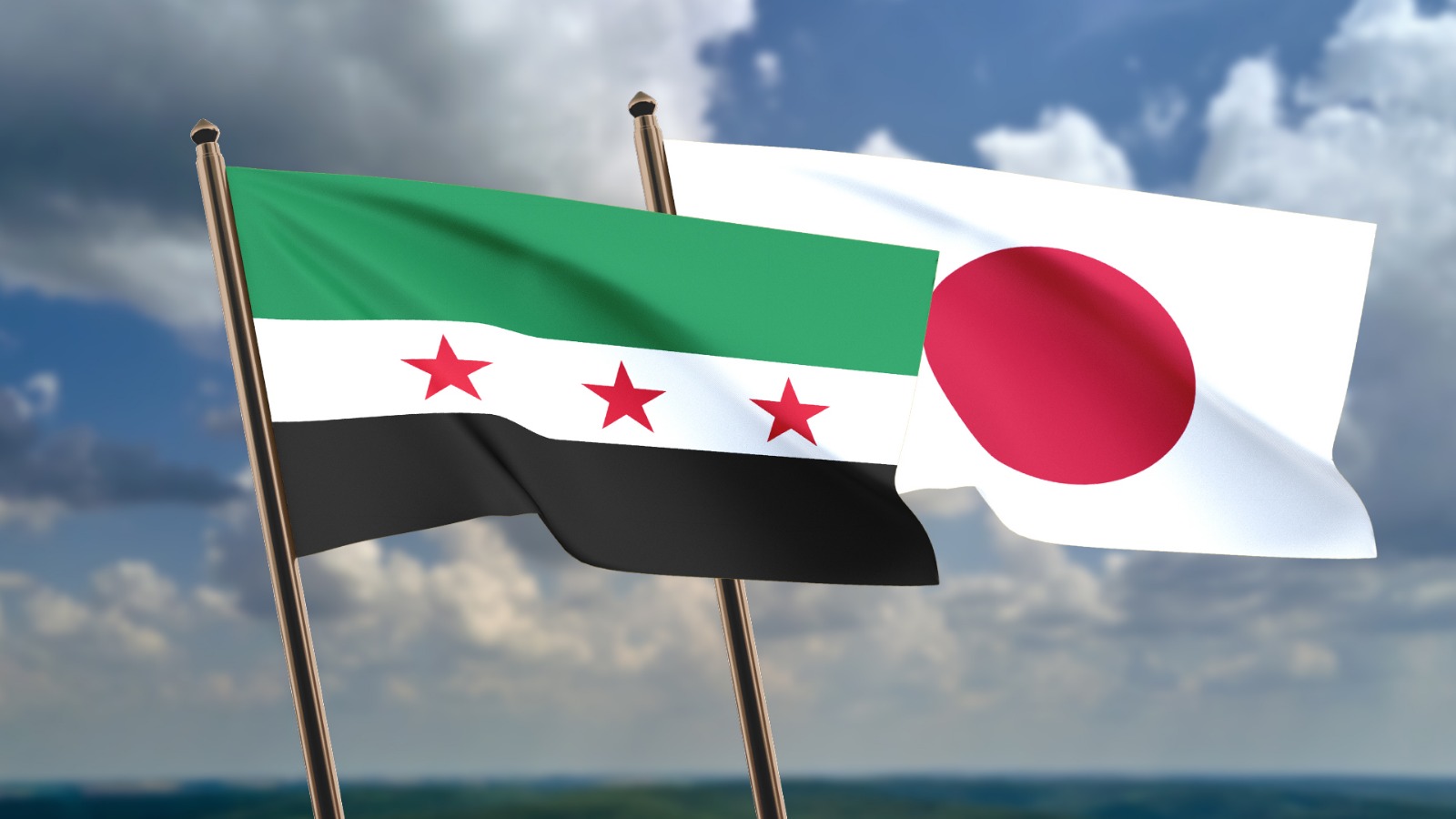The President of the Syrian Opposition Coalition (SOC), Hadi Al-Bahra, held a virtual meeting with the Japanese Chargé d’Affaires and Special Envoy to Syria, Akihiro Tsuji, with the presence of the SOC Coordinator of the External Relations Department, Abduahad Astepho. They discussed the latest developments in the recently liberated areas, efforts to secure public peace and ensure the safety of citizens by the caretaker government, as well as the challenges faced by Syrians during the transitional phase and the reconstruction process in Syria.
Al-Bahra emphasized that the main goal at this stage is to successfully navigate the transitional phase, establish security and stability, ensure basic services, and proceed with transitional governance measures to achieve the aspirations of the Syrian people, including justice, freedom, and democracy.
Al-Bahra spoke about the actions taken by the SOC, including those carried out by the armed opposition groups within the Military Operations Command and under its leadership, continuing their duties today in maintaining security and protecting state institutions. He also highlighted the presence of SOC members in several Syrian cities, participating in meetings with various components of Syrian society to promote public peace, as well as a number of diplomatic meetings. The latest of these was a meeting of the Syrian Negotiations Commission’s delegation with the UN Special Envoy to Syria, Geir Pedersen, which was recently held in Damascus to discuss the political process and future vision.
Al-Bahra praised Japan’s positive role as a major contributor to the Syria Recovery Trust Fund, saying: “Japan’s contributions in supporting and financing early recovery projects in areas outside the regime’s control have been invaluable, especially in sectors such as health services, infrastructure rehabilitation, and livelihood programs, including small loan initiatives.”
He noted that with the new situation in Syria, continued Japanese support for the Syria Recovery Trust Fund has become more crucial, adding that the fund has gained significant experience in implementing diverse projects within Syria.
Al-Bahra stressed the importance of relations with Japan, as it has helped alleviate the suffering of Syrians over the past years and will be a key commercial partner in Syria’s future, particularly in technology, industrial development, and the health sector. He also pointed out the potential to learn from Japan’s post-Hiroshima and Nagasaki recovery, focusing on common challenges and reconstruction opportunities.
Al-Bahra affirmed that Japan’s support for the transitional phase in Syria reflects the sincerity of the relations between the two countries and serves the achievement of the aspirations of the Syrian people.
He also explained that the SOC is actively engaging and communicating with all components and segments of Syrian society.
Al-Bahra further confirmed that the priority today is to support the caretaker government in Damascus, which will operate until March 2025. After that, a comprehensive transitional government will be formed, which will play a role in healing the wounds of the Syrian people and ensuring the participation of all Syrians in shaping their country’s future.
For his part, the Japanese Special Envoy reiterated that his country’s position remains clear regarding the necessity of implementing the political transition according to UN Security Council Resolution 2254, through an inclusive and credible political process to ensure stability and prosperity in Syria.
He emphasized that Japan is committed to supporting initiatives that contribute to this goal, adding that over the past 14 years, Japan has primarily provided humanitarian assistance and supported early recovery projects through agencies like the Syria Recovery Trust Fund, even under difficult circumstances.
(Source: SOC’s Media Department)










